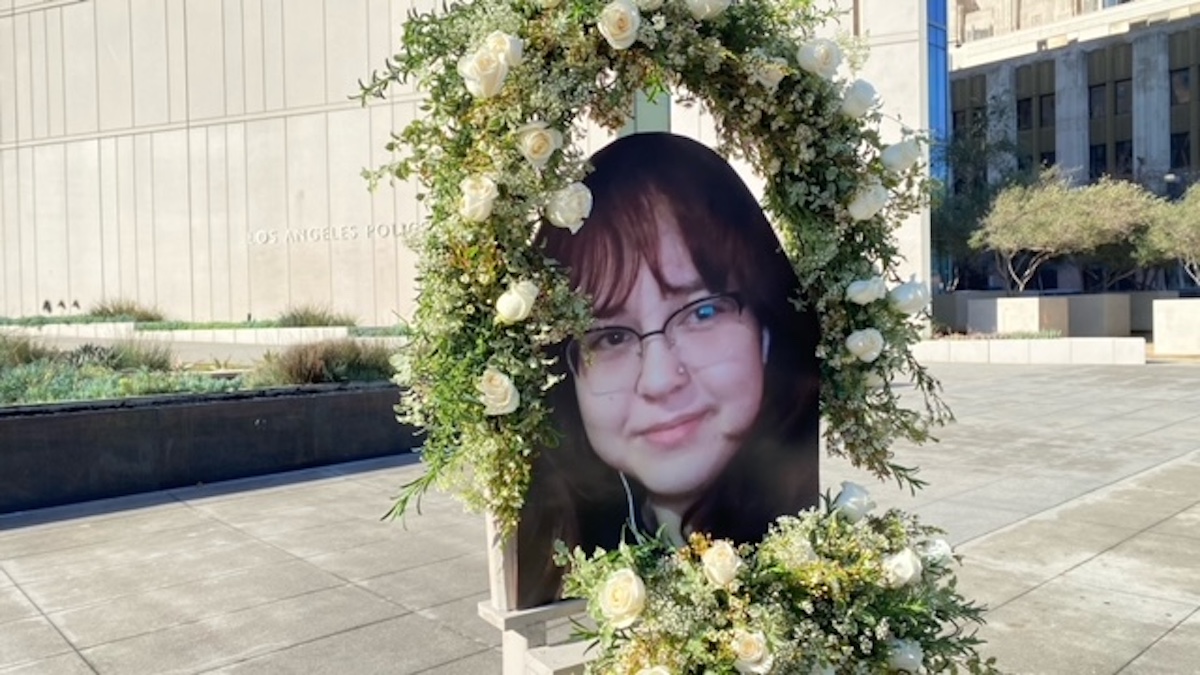The latest effort to abolish the death penalty in California is gaining ground with star power and money.
Recent polls show that Proposition 34, which proposes to replace capital punishment with life imprisonment without the possibility of parole, has considerably more support in the state now than it did even just a few weeks ago.
But trying to abolish the death penalty isn't a new effort in California, and it’s not yet clear whether the late surge will translate to success at the polls.
This time, advocates are trying to wield a financial argument in addition to the more familiar questions about the morality of putting people to death, or the risk of wrongly executing the innocent.
Advocates argue that the lengthy appeals process provided to death row inmates costs the state millions each year, yet results in the actual execution of very few.
“We've spent $100 million to execute 13 people from 1978 to 2006,” said Proposition 34 advocate LaDoris Cordell, a retired Santa Clara County Superior Court judge who serves as Independent Police Auditor in San Jose. “That just makes no sense."
Supporters of the measure include the League of Women Voters, the retired California Death Row prison warden, former Los Angeles County District Attorney Gil Garcetti, the ACLU and others.
Local
Get Los Angeles's latest local news on crime, entertainment, weather, schools, COVID, cost of living and more. Here's your go-to source for today's LA news.
"Even people who believe in the death penalty are for this," said Cordell, who is an official ballot sponsor of the proposition. "It's because the system is broken beyond repair.”
The proposition would apply retroactively to the nearly 725 people now on Death Row in the state. Prop. 34 also would draw $100 million from the general fund for police agencies to help solve more homicide and rape cases.
Opponents of Prop. 34 say that putting people behind bars for life instead of executing them, is cruel to victims' families.
And they also doubt the cost and studies anti-death penalty advocates are relying on.
"Their whole argument is cooked out of a so-called study – a biased study,” said Mark Klaas, whose 12-year-old daughter Polly was kidnapped and killed in Petaluma in 1993. "It’s estimates. It could be off by tens of millions of dollars.”
Klaas, an official opponent of the proposition, said he believes in capital punishment for people like Richard Allen Davis, who was convicted of murdering Polly and is still on death row.
Plus, Klaas said, he simply doesn’t believe that all murderers will stay in prison for the rest of their lives.
Along with Klaas, opponents to the proposition include California State Sheriff's Association, former governors Pete Wilson and George Deukmejian, the California District Attorneys Association the California Police Chiefs Association.
Two recent studies appear to show that the gap is narrowing between the yes and no votes.
A USC Dornlife/Los Angeles Times poll released Oct. 26 showed that opponents of repealing the death penalty had just a 3% edge against supporters, the newspaper reported last week. That was a significant change from the prior month, when people who said they were against abolishing the death penalty outnumbered those in favor by about 13%.
A Pepperdine University study showed that as of the end of September about 50 percent of those polled would vote no for Prop. 34 and 43 percent would vote yes. That gap had narrowed from August, where at one point, nearly 60 percent said they would vote no and 40 percent would vote yes.
As of Oct. 7, supporters of Prop. 34 had raised nearly $7 million. Much of the money came from big names, including Netflix CEO Reed Hastings and new Yahoo CEO Marissa Mayer. That amount dwarfs the $300,000 that opponents raised.
If the measure passes, California would join 17 other states that have abolished the death penalty.
But according to Larry Gerston, a San Jose State political-science professor and an NBC political analyst, those against repealing the death penalty still have a better chance of winning.
A similar effort in 2004 went down to significant defeat – despite polls that showed a close race as the election neared, he said.
Moreover, Gerston said, voters tend to vote "no" on items when they don't understand an issue.
"California's political culture is pro-capital punishment and it has been as far back as I can remember," he said.


